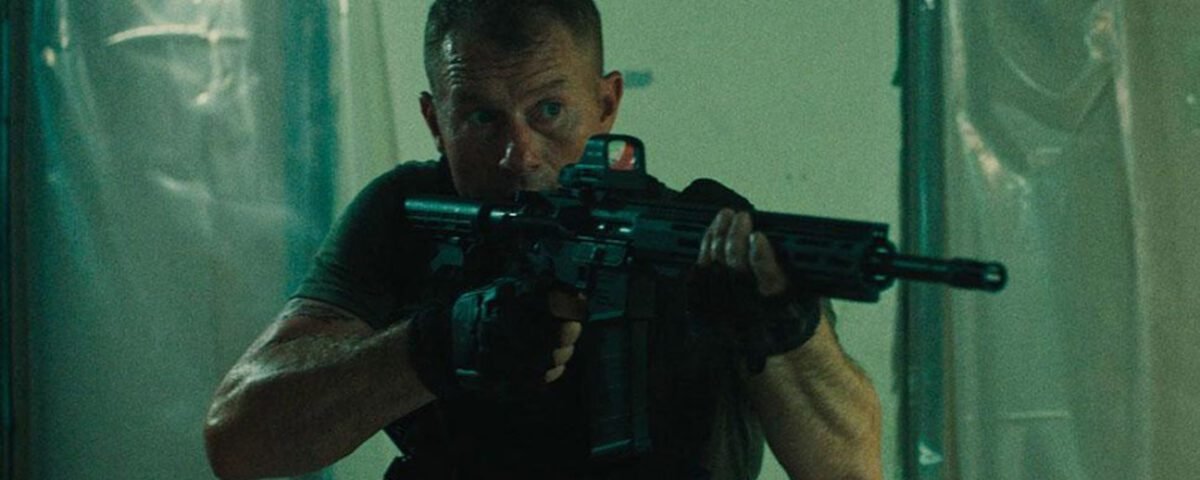


‘Queer’ Review: Daniel Craig Burns a Hole in the Screen With Obsessive Desire in Luca Guadagnino’s Trippy Gay Odyssey
September 5, 2024


‘Better Man’ Review: ‘Greatest Showman’ Director Tackles Robbie Williams Biopic, With a Simian Twist and Mixed Results
September 6, 2024James Badge Dale and Melissa Leo co-lead the ensemble in John Swab’s Oklahoma-set story, which follows several characters facing off in a brutal drug war.
King Ivory
‘Traffic’ for the opioid age.
The shadow of Steven Soderbergh’s 2000 drug war epic, Traffic, hangs heavily over all the narcs, cartel members, native gangsters and fentanyl addicts populating director John Swab’s hard-nosed thriller, King Ivory. But that’s not necessarily a bad thing.
Swab cut his chops directing genre flicks like Ida Red and Candy Land, putting out a whopping seven features since 2019. (He’s already releasing another movie, the $20 million actioner Long Gone Heroes, later this month.) His raw aesthetic and predilection for social outcasts — Candy Land was about a group of truck-stop sex workers known as “lot lizards” — lends his work a grindhouse sheen, which he applies here to a more seriously documented story about the impact of fentanyl on Tulsa, Oklahoma.
Swab certainly knows his way around the drug. In a confession that’s extremely rare to find in press notes for a movie, the director admits to shooting fentanyl back in 2015, when he was an addict himself. And while he’s been clean for nine years, the experience clearly helped lend a verisimilitude to all the scenes of dependence and getting high.
Those freebasing sequences, of which there are several, involve a hunky high school student, Jack (Jasper Jones), who gets hooked on fentanyl thanks to his girlfriend, Colby (Kaylee Curry). As it turns out, Jack’s dad, Layne (James Badge Dale), is a narcotics officer fighting each day to get the drug off the streets. Along with his partner, Ty (George Carroll), Layne uses bare-knuckle tactics that seem closer to those of a U.S. Marine than to those of a cop, as evidenced in an opening shootout where the bullets really fly.
But there’s a war out there in Tulsa, whose lucrative drug trade is not being overseen by the usual cartel, but by a native tribe chief (Graham Greene) who runs the Indian Brotherhood from a state penitentiary. It’s behind bars that he enlists fellow convict Smiley (Ben Foster) to pull off some fast murders before getting released. Once out, Smiley reteams with his uncle, Mickey, played by British actor Ritchie Coster in an absolutely gonzo version of an Irish redneck, to help the tribe take out local rivals.
A third viewpoint is added when Swab introduces the Mexican side, where fentanyl is cheaply manufactured and clandestinely shipped by cartels into the U.S. The two key players there are Ramon Gázra (Michael Mando, who memorably played a narco on Better Call Saul) and a young man named Lago (David De La Barcena), who gets smuggled over the border to work as a dealer, making DoorDash-style deliveries to needy addicts.
The sprawl and scope of Swab’s effort are impressive, but also a bit unwieldy. Some scenes feel ripped from real life, while others are too movie-ish, using dialogue that sounds like pure genre fodder. The performances aren’t always even, either, although there’s a freakish lived-in quality to them that can’t be ignored. Foster is especially good as an ice-cold killer forced to communicate through a tracheostomy tube, while Melissa Leo — playing Smiley’s wacko mom — offers up both levity and gravitas at the same time, especially in a scene when she performs illegal surgery on Ramon.
Even more memorable are the handful of set-pieces that follow Layne and his fellow cops trying to take down the bad guys. One of them takes place in a supermarket packed with shoppers and illuminated by bright fluorescents, which better reveal the gruesomeness of what eventually happens. Another occurs just before the end, involving a motel shootout that gets so violent and out of hand, it looks like a scene from an Iraq War movie.





